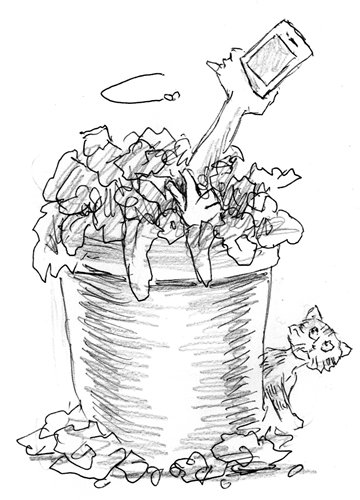Many of my friends like to use news aggregation apps and live streaming sites as they provide a brand new channel for internet users to obtain the latest information and interact with each other. News apps offer a stream of posts ranging from news reports to videos. In live streaming platforms, people can chat with broadcasters and gift them for excellent performance. In addition, many content generating and sharing sites adopt machine learning to figure out users' interests and tastes, and then tailor offerings accordingly to boost user experience. That's why they have gained wide popularity in China.

However, success breeds its own set of challenges. Chinese authorities recently ordered news aggregator Toutiao and live streaming website Kuaishou to remove inappropriate and harmful content, and close the user accounts that uploaded such content.
The two popular platforms were accused of allowing minors to spread obscene content, such as hosting videos that feature teenage mothers, claiming to be aged 13 or 14, holding newborns in their arms or appearing on video looking pregnant.
Later, four popular Chinese news apps were temporarily removed from the Android store in China: Toutiao, Phoenix News, NetEase News and Tiantian Kuaibao suspended their downloading services on Monday with the aim of regulating information dissemination.
Multiple factors contribute to the widespread inappropriate content. Take live streaming sites as an example. Live streaming platforms give more ordinary people opportunities to show off their capabilities. Therefore, an increasing number of young Chinese were trying their hand at being online hosts on live streaming platforms as a way to become famous overnight. To draw online attention, some hosts broadcast illegal activities or uploaded obscene and violent content related to gambling, pornography and drug use.
For instance, Li Tianyou, a popular online host famous for hanmai, rapping shouted over dance music, was banned from live streaming platforms earlier this year because he often talked about pornographic topics and described different feelings after taking drugs during his broadcast.
In addition, many news apps and live streaming sites allow artificial intelligence to select. This technology automatically picks news pieces and videos from popular news websites and social video-sharing apps and pushes what it considers the most interesting posts to users. Popularity is an important principle for the selections, but such a mode lacks reviews carried out to examine whether the content is improper. When users click and watch videos featuring vulgar content, the platforms recommend similar ones. As a result, lots of inappropriate content is pushed frequently and spreads quickly. Worse, that prompts other similar platforms to provide more vulgar content to gain popularity.
Content generating and sharing platforms, especially those with a large user base, should be blamed for disregarding regulations and jeopardizing order in the online media and entertainment industry. Toutiao is a case in point. As China's most popular news application with more than 120 million daily active users, Toutiao should have done a better job regulating content. However, vulgar content run rampant on the platform, disrupting the cyber environment.
Against this backdrop, inappropriate content should be removed immediately. Accounts and hosts found to be providing vulgar content should be banned from uploading videos or broadcasting programs. Website managers and employees who allow harmful content to be broadcast should be held accountable.
Content generating and sharing platforms should beef up efforts to regulate content. Content providers and broadcasters should abide by relevant laws and regulations to create a healthy online environment.
(Illustrations: Global Times)
The author is a postgraduate student in translation studies at Beijing Language and Culture University.


